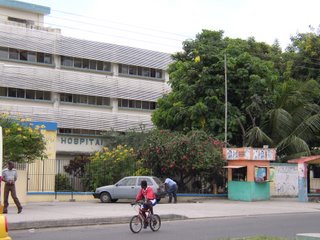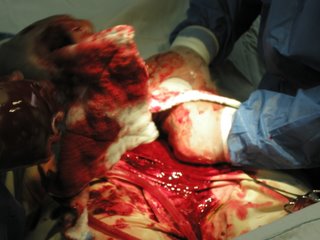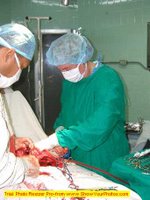Peter Keenan Volunteering Experience at Esmereldas Hospital July-August 2005




In the summer of 2005, I went to Ecuador with the goals of experiencing medicine in another country and practicing medical and non-medical Spanish. During these three months, I traveled throughout the country’s mountains, plains, and coasts, meeting people who changed my outlook on life. Of the time I spent in Ecuador, the most memorable and meaningful experience was the six weeks of volunteering in the hospital in Esmereldas. Although other volunteer organizations offered language lessons and a more structured program, I found the experience with Ecotrackers to be simple yet superb. At Hospital Delfina Torres de la Concha, I was able to observe and assist in medical procedures, improve my Spanish, and reach a closeness with the people far beyond what I had expected given the short time I was there.
I spent the first two days in Esmereldas by myself before another volunteer arrived. Surprisingly, I had no problem making friends in this city, probably because I look nothing like the locals, who often greeted me on the streets in broken English. One of these locals, named Simon, greeted me on my first day and introduced me to a delicious restaurant near the apartment which I frequented often. Simon soon became a great friend, eventually accompanying me to the island of Muisne to meet his family.
When I first arrived at Hospital de la Concha, I was excited but unsure of what to expect due to the city’s reputation for violence. However, I was immediately taken in by the staff’s hospitality and curiosity, not to mention their patience with my broken Spanish. Although I was given many warnings by the local people about where not to go for safety reasons, not once was I a victim or witness to any act of violence. This was in spite of my partaking in local activities such as pick-up basketball and dancing. This being said, women should expect to attract more attention than usual.
Of the doctors working in the hospital, the majority of them are students in their last year of general medical training, which happens to be the seventh of eight years of medical school in Ecuador. Most are more than willing to discuss their plans for specialization, and are generally interested in practicing their English, which is often not a strong suit. They were very patient with my Spanish, which facilitated communication and language learning.
The student doctors rotate between the hospital’s four main departments: general medicine, pediatrics, obstetrics, and surgery. They also attend weekly lectures in the hospital and take an exam at the end of each rotation. This environment of learning makes the hospital a great place for any student of medicine or public health. The doctors’ interest in learning about life and medicine in the other countries led to unifying discussions and good times.
Early on in my time at the hospital in Esmereldas, I became close friends with the doctors, and felt right at home in the hospital. In addition to observing assessments of patients with tropical diseases and assisting in surgeries, I met with some of the doctors outside of the hospital, with whom I attended local events. The Esmereldas Independence Festival, which I attended on August 6, was a great chance to witness the spirit of the city.
My experience in Esmereldas was something I will never forget. I arrived at the hospital with simple plans and came away with new friends and a feeling of accomplishment. Esmereldas may be a city without all of the amenities of home, but for those with a sense of adventure and a willingness to learn, it is not an opportunity to miss.
Comments